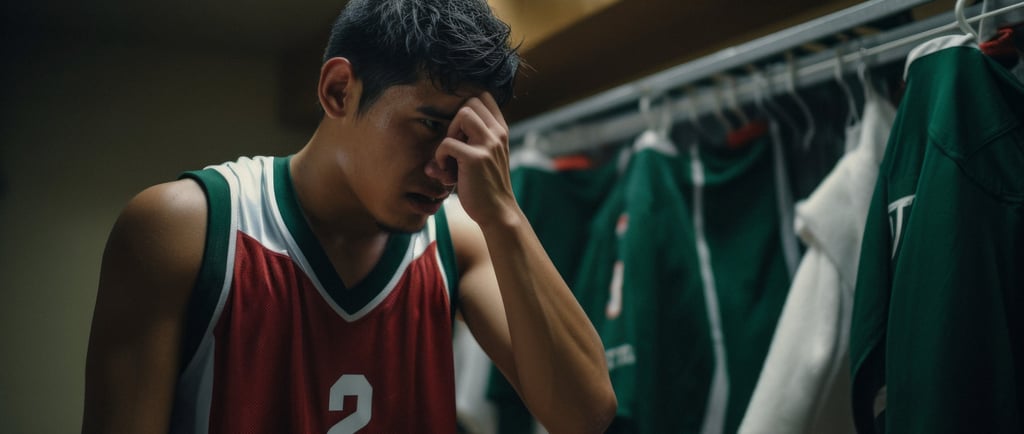Mental Health of Athletes in Malaysia: A Closer Look
Malaysian athletes face unique mental health challenges, from performance anxiety and burnout to stigma around seeking help, despite growing institutional support and specialized clinics. This blog highlights that continued efforts to raise awareness and expand mental health resources are essential to ensure athletes thrive both on and off the field.


Athletes are often celebrated for their physical strength and achievements, but their mental health is just as crucial. From aspiring school athletes to seasoned professionals, athletes face unique psychological pressures that can impact their well-being. This article explores the importance of mental health in sports, common challenges athletes encounter, and the specific context for Malaysian athletes.
Common Mental Health Challenges Among Athletes
Mental health is a key part of overall well-being and athletic performance. While participating in sports generally helps reduce stress, boost mood, and build confidence, the competitive side of sports can also introduce significant psychological challenges.
Athletes may experience a range of mental health issues, including:
Anxiety and Depression: The pressure to perform, fear of failure, and public scrutiny can sometimes lead to overwhelming feelings of anxiety or sadness.
Burnout: Rigorous training and high expectations, especially without adequate rest, can result in both physical and emotional exhaustion.
Eating Disorders: Sports that emphasize weight or appearance may increase the risk of unhealthy eating habits, even among male athletes.
Injury-Related Distress: Injuries can leave athletes feeling isolated or disconnected from their sport, which can be emotionally challenging.
Substance Use: Some athletes might turn to substances as a way to cope with stress or to try to enhance performance, which can create further issues.
Unique Pressures Faced by Athletes
Athletes often encounter pressures that set them apart from the general population:
High Expectations: The drive to succeed and the fear of disappointing coaches, teammates, or fans can be a constant source of stress.
Public Scrutiny: For high-level athletes, mistakes and setbacks are often very public, which can affect self-esteem.
Transitions and Retirement: Leaving a sporting career, whether due to age or injury, can bring about identity challenges and emotional distress.
Stigma: In many cultures, including Malaysia, there’s a strong expectation for athletes to be tough, which can make it difficult to talk openly about mental health struggles.
Mental Health in Malaysian Athletes
Malaysian athletes, from school teams to national squads, often feel intense pressure to perform. Malaysia’s first Sports Psychiatry Clinic (SPC) found that anxiety-related disorders are the most common issues among athletes seeking help. Burnout, migraines, and post-concussion symptoms are among the other reported issues. Despite these challenges, many athletes hesitate to seek support, often due to stigma or concerns about their careers.
During the COVID-19 lockdown, the mental health of Malaysian athletes was further tested by canceled competitions and disrupted training. Research found that around 7 out of 100 athletes experienced severe stress, around 20 out of 100 faced severe anxiety, and around 10 out of 100 dealt with severe depression. These numbers highlight just how much the pandemic affected athletes’ mental well-being.
Progress and Gaps in Malaysia’s Sports Mental Health Support
Malaysia has made commendable strides in addressing athlete mental health. The establishment of the Sports Psychiatry Clinic provides a specialized service where athletes can access psychiatric and psychological care tailored to their unique challenges. Additionally, initiatives such as mental health first aid training at the National Sports Institute (ISN) demonstrate growing awareness and institutional support.
However, challenges remain. For example, the stigma surrounding mental health in Malaysia’s sports culture, where toughness and resilience are highly valued, continues to discourage many athletes from seeking help.
How We Can Better Support Our Athletes
To further mental health support for Malaysian athletes, these steps are essential:
Raise Awareness: Promote the message that seeking help is a sign of strength, not weakness.
Expand Specialized Care: Increase the number of clinics and mental health professionals focused on sports.
Coach Training: Equip coaches and trainers to recognize and respond to mental health concerns early.
Final Thoughts
Mental health is just as important as physical fitness for athletes. While Malaysia is making progress, more can be done to ensure athletes feel supported and safe when facing mental health challenges. By encouraging open conversations and providing specialized care, we can help athletes thrive, both in their sport and in life.
If you or someone you know is an athlete facing mental health challenges, don’t hesitate to reach out. Contact us today for a confidential consultation with our experienced mental health professionals. Taking care of your mind is an essential part of being your best, on and off the field.
References:
Gouttebarge, V., Bindra, A., Blauwet, C., Choudhury, A., Currie, A., Gabbe, B., ... & Reardon, C. L. (2019). The mental health of elite athletes: A narrative systematic review. Sports Medicine, 49(11), 1643–1668.
Koh, E. B. Y., Pang, N. T. P., Kassim, M. A. M., & Wong, R. S. K. (2025). Clinical audit of a sports psychiatry clinic in Malaysia. Sports Psychiatry, 2(1), 19–28.
Koh, E. B. Y., Pang, N. T. P., Kassim, M. A. M., & Wong, R. S. K. (2025). Sports and mental health in Malaysia: An emerging focus. Sports Psychiatry, 2(1), 29–38.
Sut Txi, M. R., Ishak, A., Mat Salleh, F. N., Pau, K., & Hashim, H. A. (2022). The prevalence of emotional distress among athletes during COVID-19 Movement Control Order period in Malaysia. Annals of Applied Sport Science, 10(2), Article 1018.


